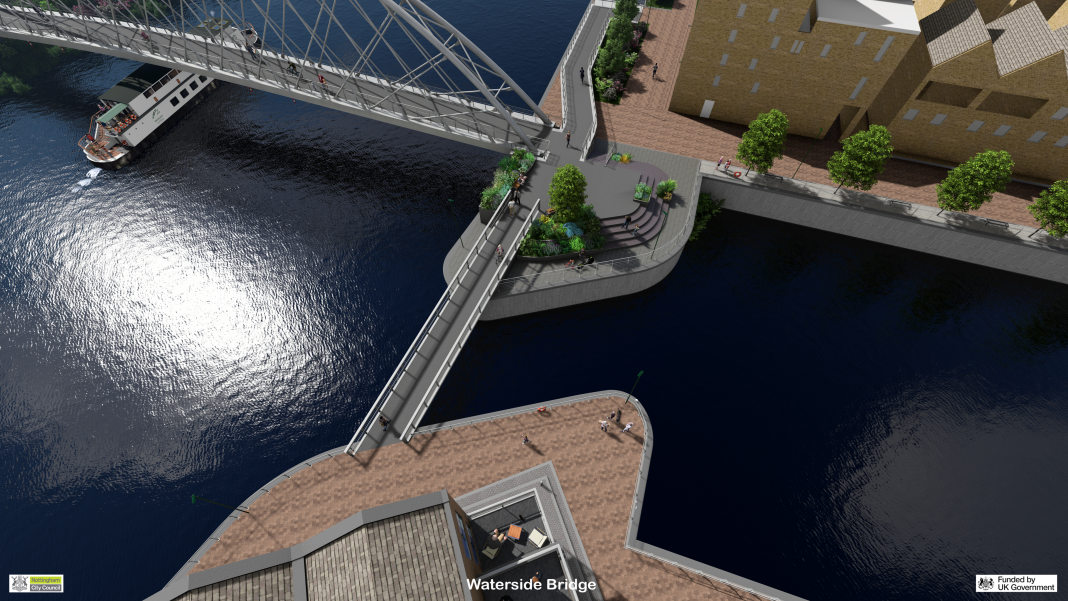Work on the first new bridge over the River Trent in 60 years is expected to begin early in 2025.
Nottingham City Council’s ambitious project to build a new 85 metre long pedestrian and cycle bridge over the River Trent between Trent Basin and Lady Bay has reached a new milestone, with the project given a final approval from the Council at its Executive Board meeting on 22 October.
Once this approval is given, the project will get a final go-ahead from the Department for Transport before contracts are signed and work can begin in the new year.
The bridge will be the flagship, and final, project to come out of the City Council’s Transforming Cities Fund programme, which began in 2020 following a successful bid for over £160 million of central Government funding for projects which encourage inter-city connectivity and lower carbon journeys.
The new traffic-free bridge, the first to be built over the River Trent since Clifton Bridge in the 1950s, and its new and enhanced connecting paths will be a key link between the regenerating Trent Basin area with its new homes and schools, and the south side of the river with its many sports facilities including the City Ground, Trent Bridge, Holme Pierrepont and Nottingham Rugby Club.
By enhancing connections between communities, green spaces and riverside paths, the bridge will make it easier for people living and working in the Nottingham area to travel in a more sustainable way, linking those in communities such as Sneinton and the city centre with green space south of the river.
The new bridge will also help the city towards its Carbon Neutral 2028 ambition as well as improving local air quality and congestion levels by enabling people to get around for work or play without needing a car.
Planning for this ambitious and complex project has been underway since 2019, with many important milestones already achieved including public consultations, detailed design work, land agreements, securing planning permission from the City Council and Rushcliffe Borough Councils, as well as working with the Environment Agency, local residents and other stakeholders to make sure the new bridge works for everyone.
Since the project began, plans have evolved as the design and methods of construction have been refined and this along with other factors outside of the Council’s control, including Covid, the war in Ukraine, and periods of high inflation, means that the maximum delivery budget for the total project is now £18 million. The final construction costs will be confirmed by December 2024.
Looking ahead, the City Council intends to enter into contracts with the lead delivery partner Balfour Beatty in January with enabling works starting early in 2025.
Then, into the spring and summer, a warehouse used by Flo Skate park will be demolished to make way for the bridge sections to be brought to site and erected before being lifted into place by a gigantic crane during autumn 2025. The new bridge is expected to officially open in early 2026.
Nottingham City Council Leader and Executive Member for Strategic Regeneration, Transport and Communications, Councillor Neghat Khan said: “The new bridge will be the first built over the Trent in Nottingham for more than 60 years, creating a vital link between developing new communities and opening up new safer commuter and leisure routes, offering a huge boost to cyclists, pedestrians and runners as well as everyone in our city through improving air quality and congestion.”
Other Transforming Cities-funded projects already completed include the new bus station in Bulwell, the expansion of safe city centre cycle routes and a secure new cycle store at Broad Marsh, the transformation of Collin Street into a new area of public realm and playground and the newly opened Green Heart area.



